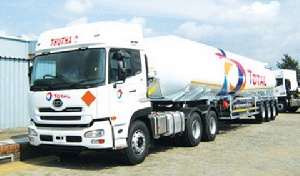Oil marketing companies have sunk in excess of GH¢100million since the start of the year into battling the ongoing power crisis that has singlehandedly brought some businesses to their knees -- facing collapse.
According to the Association of Oil Marketing Companies (AOMCs), there are more than 3,300 retail outlets for petroleum products across the country. A retail outlet on average spends about GH¢10,000 a month to power generator sets.
Under the current load-shedding regime wherein power is restored for 12 hours after every 24 hour outage, businesses like petroleum products retail outlets that rely on power face more than 20 days without power in a month.
Kwaku Agyemang-Duah, AOMCs Chief Executive Officer, told the B&FT that before onset of the power crisis, petroleum service stations spent about GH¢300 per month to provide standby power in case of unscheduled power outage.
“But with the worsening situation, we are spending on the average GH¢10,000 per month to power a single service station. And this is not to mention cost that comes with maintaining these generators following excessive usage. This is additional cost. If you take an OMC which has got say 30 outlets, and is spending about GH¢10,000 on them, we are talking about GH¢300,000 every month.
According to Mr. Agyemang-Duah, this additional cost is crippling the oil marketing companies which already operate in a sector where price is strictly regulated, and as such margins are also very tight.
“It is one of the areas that are so bad; these are unplanned costs. Obviously, in business unplanned costs should be minimal…we are working under a regulated pricing regime so our margins are determined, and our margins are so small. So anything that goes to affect our costs is definitely going to make life difficult for us,” he added.
Per the National Petroleum Authority’s regulations, he said all fuel service stations must have standby generators; even when they go for inspections, the gen-sets are examined as to whether they are up to standard.
He said persistence of high cost for generating power will mean that the OMCs which employ over 40,000 people will have to take drastic measures to ensure they maintain efficiency.
Mr. Agyemang-Duah refused to rule out possibilities of the US$6billion sector laying-off workers to keep business afloat. He maintains that a lot of options are open to the OMCs, and each will seek to pursue what it sees as right.
Business News of Wednesday, 6 May 2015
Source: B&FT













